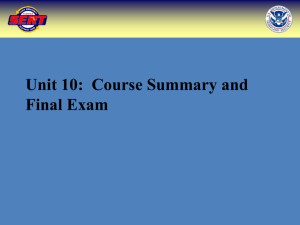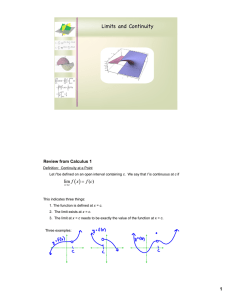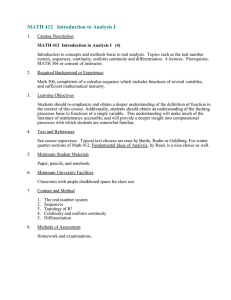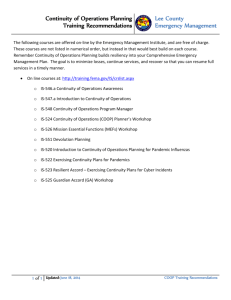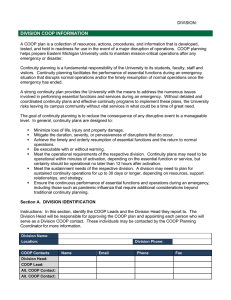University of North Carolina Wilmington Continuity of Operations Planning (COOP):
advertisement
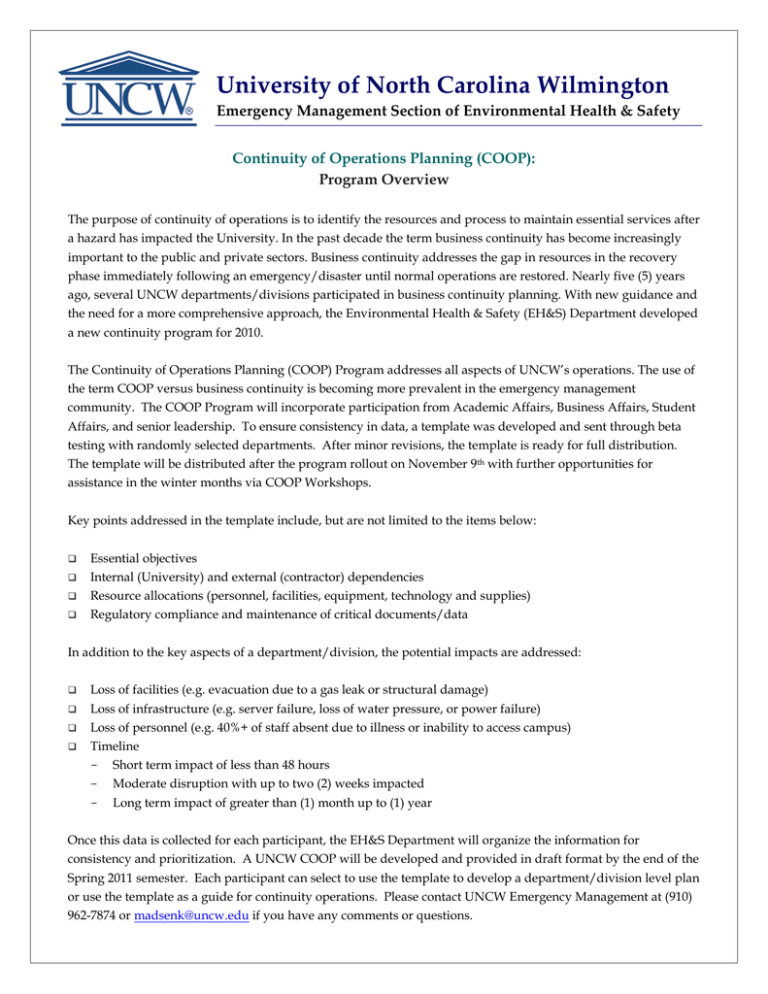
University of North Carolina Wilmington Emergency Management Section of Environmental Health & Safety Continuity of Operations Planning (COOP): Program Overview The purpose of continuity of operations is to identify the resources and process to maintain essential services after a hazard has impacted the University. In the past decade the term business continuity has become increasingly important to the public and private sectors. Business continuity addresses the gap in resources in the recovery phase immediately following an emergency/disaster until normal operations are restored. Nearly five (5) years ago, several UNCW departments/divisions participated in business continuity planning. With new guidance and the need for a more comprehensive approach, the Environmental Health & Safety (EH&S) Department developed a new continuity program for 2010. The Continuity of Operations Planning (COOP) Program addresses all aspects of UNCW’s operations. The use of the term COOP versus business continuity is becoming more prevalent in the emergency management community. The COOP Program will incorporate participation from Academic Affairs, Business Affairs, Student Affairs, and senior leadership. To ensure consistency in data, a template was developed and sent through beta testing with randomly selected departments. After minor revisions, the template is ready for full distribution. The template will be distributed after the program rollout on November 9th with further opportunities for assistance in the winter months via COOP Workshops. Key points addressed in the template include, but are not limited to the items below: Essential objectives Internal (University) and external (contractor) dependencies Resource allocations (personnel, facilities, equipment, technology and supplies) Regulatory compliance and maintenance of critical documents/data In addition to the key aspects of a department/division, the potential impacts are addressed: Loss of facilities (e.g. evacuation due to a gas leak or structural damage) Loss of infrastructure (e.g. server failure, loss of water pressure, or power failure) Loss of personnel (e.g. 40%+ of staff absent due to illness or inability to access campus) Timeline - Short term impact of less than 48 hours - Moderate disruption with up to two (2) weeks impacted - Long term impact of greater than (1) month up to (1) year Once this data is collected for each participant, the EH&S Department will organize the information for consistency and prioritization. A UNCW COOP will be developed and provided in draft format by the end of the Spring 2011 semester. Each participant can select to use the template to develop a department/division level plan or use the template as a guide for continuity operations. Please contact UNCW Emergency Management at (910) 962-7874 or madsenk@uncw.edu if you have any comments or questions.
